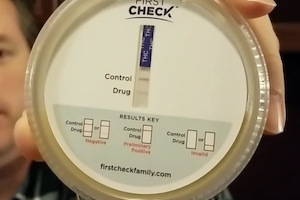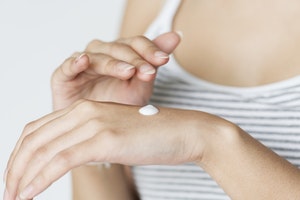CBD Side Effects

If you’re reading this then you’re probably considering taking Cannabidiol (CBD) yourself or getting it for a loved one. And of course, you want to know if it’s going to have any undesired side effects. So let’s get right to it…
What are the side effects of CBD? The most commonly reported side effects of CBD according to a comprehensive medical review were tiredness, diarrhea, and changes in appetite and/or weight. More studies involving humans over an extended period of time are needed to confirm the long-term safety of CBD. However, high doses of up to 1500 mg/day, which is a LOT, in humans over an extended period of time have been shown to be well tolerated.
Because CBD is still classified by the federal government as a class 1 narcotic there haven’t been a lot of medical studies performed that could confirm the safety of CBD or possibly expose any other risks from CBD. But the studies which have been done are very favorable regarding CBD safety. In addition, when you compare the common side effects of CBD to the known common side effects of prescription medications that CBD could replace, the possible side effects of CBD become fairly insignificant. It is worth noting that CBD can have an impact on how quickly certain compounds, including many pharmaceuticals, are metabolized. We’ll discuss this more below, but in that way, it could produce some unintended side effects.
What CBD doesn’t do
As we consider the side effects of CBD, what we’re really talking about is whether its safe to use it or not. In that spirit, it may be helpful to look at what we know CBD doesn’t do. In a comprehensive review of CBD safety, researches found several important things that CBD does NOT do…
- Physiological parameters such as heart rate, blood pressure, and body temperature are not affected by CBD
- Psychological functions such as mood, and psychomotor functions like coordination, strength, movement, and speed, are not affected by the presence of CBD in the system
- Gastrointestinal functions such as motility and transit time are not affected by CBD
All of these aspects of health are extremely important to overall health. The fact that CBD doesn’t affect these is certainly a plus for CBD. Medications that may be prescribed by your doctor that CBD may be able to replace are known to affect the above bodily functions. So if you were able to take CBD in place of some of these prescription medications you may experience an overall improvement in health if you’ve been experiencing negative side effects.
Epidiolex
 The Federal Drug Administration in the United States recently approved the use of a drug called Epidiolex for patients who suffer from two rare forms of epilepsy. Epidiolex is simply a commercial name for Cannabidiol (CBD). This medication is plant derived just like CBD oil you might purchase from an online retailer. The approval of Epidiolex by the FDA is very significant to the conversation regarding CBD safety and side effects.
The Federal Drug Administration in the United States recently approved the use of a drug called Epidiolex for patients who suffer from two rare forms of epilepsy. Epidiolex is simply a commercial name for Cannabidiol (CBD). This medication is plant derived just like CBD oil you might purchase from an online retailer. The approval of Epidiolex by the FDA is very significant to the conversation regarding CBD safety and side effects.
GW Pharmaceuticals, the company who is launching Epidiolex, had to do significant research and trialing to prove that CBD was not just effective at treating epilepsy, but that it was generally safe for patients to take. They list the following side effects for CBD:
- Drowsiness
- Decreased appetite
- Diarrhea
- Transaminase elevations
- Fatigue
- Feeling unwell (malaise)
- Weakness/lethargy
- Rash
- Difficulty sleeping (insomnia, disordered sleep, and poor quality sleep)
- Infections
Some of these potential side effects were not listed in our answer above. The reason for this is that Epidiolex is given at very high doses in order to be effective against very rare forms of epilepsy. It would be cost prohibitive for the average person to buy enough CBD oil to take this amount of CBD over an extended period of time. These side effects are rare even for people taking Epidiolex and are therefore very unlikely for the average person taking much lower doses of CBD.
So what should I expect as likely side effects at low doses
The average person who takes CBD at fairly low doses (15 – 30 mg/day) would likely experience very little if any side effects. We recommend to start taking CBD at a time and place where you can relax after taking CBD for the first time. Don’t take it for the first time right before going for a long drive or before going to work. This is just in case you feel tired you’ll be able to lie down and take a nap. Also, you should start with a low dosage for several days and see how you respond. Then if you’re tolerating the CBD well but not quite getting the benefits you want, go ahead and up the dose again for another week. Repeat this until you find the right dose that provides help for your condition but doesn’t cause you any undesired side effects.
One of the nice things about CBD is that your body doesn’t appear to develop a tolerance to it. Tolerance meaning your body doesn’t need more and more of it over time in order to achieve the same effect. What this means is once you’ve found the right dose for you, you shouldn’t have to increase the amount of CBD you need each day even over a long period of time.
Interactions with other medications
 As mentioned above, CBD can affect the metabolism of many drugs that are prescribed by doctors. Generally, CBD slows down the metabolism of these medications. It has this effect on any drug that is metabolized by the liver. This encompasses around 60% of all medications. It even affects caffeine and some other common chemicals that are processed in the liver. So if you’re taking prescription medications already, you should talk with your doctor before starting CBD to make sure it won’t cause you any troubles. It’s likely you’ll simply have to adjust the dosage of your current medications since they will stay in your system longer. Unlikely it will save you much money, but who knows??
As mentioned above, CBD can affect the metabolism of many drugs that are prescribed by doctors. Generally, CBD slows down the metabolism of these medications. It has this effect on any drug that is metabolized by the liver. This encompasses around 60% of all medications. It even affects caffeine and some other common chemicals that are processed in the liver. So if you’re taking prescription medications already, you should talk with your doctor before starting CBD to make sure it won’t cause you any troubles. It’s likely you’ll simply have to adjust the dosage of your current medications since they will stay in your system longer. Unlikely it will save you much money, but who knows??
A word about THC
As you’re probably aware, CBD can be derived from both hemp and marijuana plants. These two types of plants are both members of the cannabis family. However, they vary in a few key ways. One of those key differences is the amount of THC they contain. Hemp contains less than 0.3% THC while marijuana may contain significantly higher levels of THC.
THC is the psychoactive cannabinoid (a compound found in cannabis) responsible for producing the “high” people experience when they consume marijuana. So if you go to a dispensary or jump online and purchase CBD that comes from marijuana, it’s likely to contain fairly high levels of THC. If you take this form of CBD you are likely to experience at least some level of a “high”. For many people, this could be considered a negative side effect.
In addition to experiencing an unwanted or unintended high, if you take CBD from marijuana that has THC in it, you are likely to fail any drug test that your employer may require you to take. THC is the compound that drug tests look for to determine if you’ve been using marijuana. CBD itself won’t cause you to fail a drug test, but THC will. You can learn more on a recent post we did about this topic. But keep in mind, even if you live in a state where medical marijuana or recreational marijuana is legal, be sure and check with your employer to make sure you won’t be in the unemployment line if you test positive for THC.
The bottom line regarding THC is that it is responsible for producing a high. If this isn’t what you’re looking for, or you are worried that THC in your system could cause you to lose your job, then make sure you get CBD that’s sourced from hemp. Or look for CBD isolate which contains only CBD without any THC.
Some people will argue, and they’re probably correct, that when you use CBD isolate you’re missing out on some of the other good chemicals like terpenes, and other cannabinoids that can come from hemp CBD oil and even from marijuana CBD oil. But this is where you need to make the decision of what you’re looking for from CBD. If you start with an isolate and it gives you the results you’re looking for, then do you need any of those other compounds? Probably not. So decide first what you’re looking for and what you’re comfortable with.
Final comments
Our best recommendation for those just starting out with CBD is to start with low doses at first. Read the instructions on whatever product you purchase and follow them. If you are taking other medications prescribed by your doctor, or you’re just concerned about trying CBD, talk with your doctor before starting CBD to make sure it won’t cause you any problems. Otherwise, rest assured that CBD is a natural, plant-derived, and generally a pretty safe drug.


